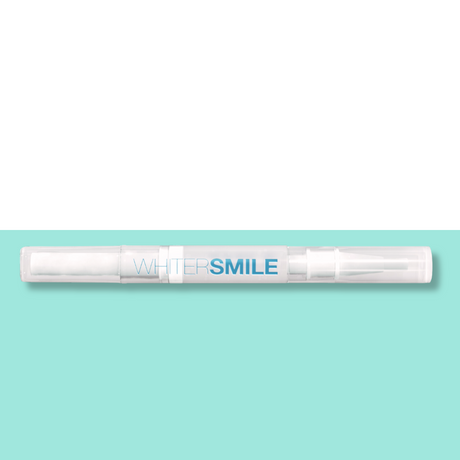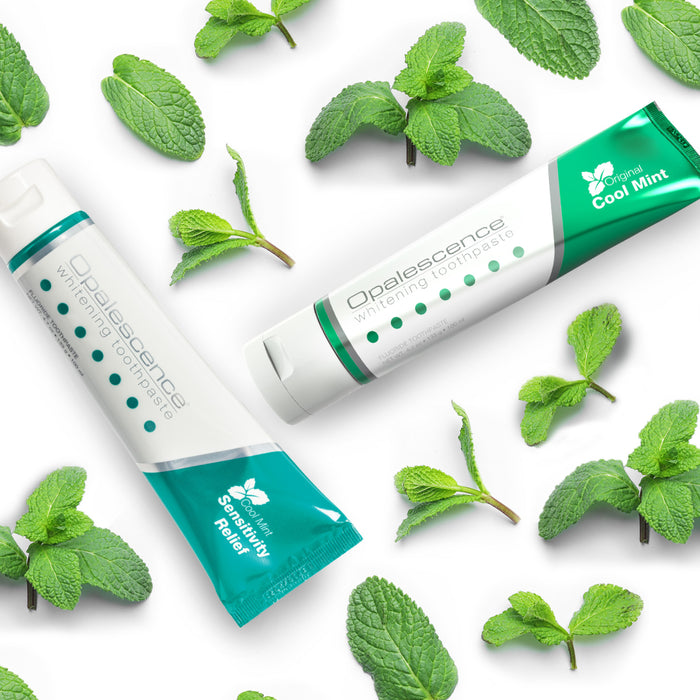MyoTape Sensitive is the ideal solution for those with sensitive skin and seeking to improve their sleep and overall health. These mouth tape strips are designed to promote nasal breathing while reducing snoring and mouth breathing - all without irritation or discomfort.
Crafted with hypoallergenic, skin-friendly adhesive and gentle cotton material, MyoTape provides a comfortable and secure fit, making it ideal for use alongside CPAP machines. This innovative product supports better sleep, enhanced health, and improved well-being.
Nasal breathing offers numerous benefits, including reduced snoring, sharper focus, and better dental health. MyoTape is especially helpful for those managing sleep apnea or struggling with mouth snoring, allowing you to wake up feeling refreshed and energised.
Application is quick and simple - just stretch, secure, and remove. Experience the transformative power of nasal breathing and enjoy deeper, more restful sleep.
Take control of your health and elevate your sleep quality with MyoTape for Beards. Make the switch today and discover the difference for yourself!
MyoTape Options
How to use MyoTape

MyoTape FAQ
What size should I buy?
What size should I buy?
All faces are different, however our guidance on sizing is:
- Large: For most men and circa 50% of women
- Medium: For more petite faces and teenagers
- Small/Children: For children- older children might prefer the non-print (S) versions
Still not sure which size? You can always measure your childrens mouth.
- Mouth Width greater than 52mm (2.05 inches) = Large
- Mouth Width between 47mm and 52mm (1.85inches and 2.05 inches) = Medium
- Mouth Width less than 47mm (1.85 inches) = Small
How to measure:
- Get a ruler and find a mirror.
- Relax your face and mouth (ie a neutral face expression)
- Measure the width of your mouth (ie edge to edge)- using mirror image for most accurate results.
What is the benefit of nose breathing during sleep?
What is the benefit of nose breathing during sleep?
The body is naturally designed for nasal breathing, which is far healthier than breathing through the mouth. While habitual mouth breathing is surprisingly common, it’s an unhealthy way to breathe. By the age of 40, you’re six times more likely to spend part of your sleep mouth breathing, and around 50% of children mouth breathe at least occasionally.
Mouth breathing leads to inhaling more air than the body needs, disrupting blood biochemistry in a condition known as chronic hyperventilation. This reduces blood CO2 levels, which is essential for oxygen release from the blood into the body’s tissues. Without sufficient carbon dioxide, the body struggles to access the oxygen it needs. Additionally, mouth breathing bypasses the beneficial effects of nasal nitric oxide and CO2, leading to nasal congestion and reinforcing the habit of mouth breathing.
Chronic hyperventilation—and its nighttime counterpart, sleep-disordered breathing—are linked to numerous physical and mental health issues, including high blood pressure and anxiety disorders. In contrast, nasal breathing engages the diaphragm, regulates breathing volume, and filters, warms, and humidifies the air before it reaches the lungs, protecting the airways from irritants, bacteria, and viruses. Mouth breathing provides none of these benefits.
It’s time to make the switch to nasal breathing!
How do I know if I mouth breathe during sleep?
How do I know if I mouth breathe during sleep?
Waking up with a dry mouth, bad breath, or sore ribs from your partner’s attempts to stop your snoring are signs that you may be mouth breathing during sleep. This can negatively affect your sleep quality and overall health, often leading to daytime fatigue and difficulty with focus and concentration.
Why MyoTape?
Why MyoTape?
MyoTape was specifically designed by breathing expert Patrick McKeown to address a common challenge he encounters with his clients. Since 2002, Patrick has worked with both children and adults to restore functional breathing, improve overall health, and enhance performance in sports and academics. Having experienced the effects of chronic asthma himself, which significantly impacted his quality of life, he is deeply committed to sharing his expertise to help others. His research and insights into mouth breathing in children are fueled by a passion for helping every child achieve their full potential.
My child mouth breathes during sleep. Should I be concerned?
My child mouth breathes during sleep. Should I be concerned?
Yes, mouth breathing during childhood can negatively impact the development of the face, airways, and teeth. Children with sleep-disordered breathing may also face challenges in school. Snoring in children is not normal—no child should snore. If you notice your child breathing through their mouth, whether during the day or at night, it’s essential to take action to restore nasal breathing.
How do I help my child to use MyoTape?
How do I help my child to use MyoTape?
Firstly, if your child has nasal congestion, please watch and practice the free children’s breathing program, which is available online at ButeykoClinic.com/buteykochildren/
- MyoTape is not suitable for children under 4 years of age
- The tape should not be used if your child is unable to remove it by themselves
- Do not use the tape if your child has a tummy upset or is at risk of vomiting
- Children must only use MyoTape with adult supervision
MyoTape should be worn every day while your child is awake, for between 30 minutes and 2 hours. It is especially important to use MyoTape when your child is distracted, for example, while playing with toys, drawing, watching TV or using an iPad.
MyoTape can also be used for children over four years of age during sleep. Please consult with a medical doctor before using the tape with your child during sleep.
Applying the tape:
- Remove the paper backing from your MyoTape
- Using your hands, gently stretch the tape by about 20%
- Encourage your child to bring his or her lips together
- Gently place the tape so that it surrounds your child’s mouth
Is there anyone who shouldn’t use MyoTape?
Is there anyone who shouldn’t use MyoTape?
- Do not use MyoTape if you have consumed alcohol or drugs or taken any type of prescribed sedative medication
- Do not use the tape if you feel nauseous or may vomit
- MyoTape is not suitable for children under four years old
- MyoTape cannot be worn if you have facial hair. In order to adhere to the skin, it must be applied to a shaven face
What is MyoTape made from?
What is MyoTape made from?
MyoTape is made using cotton and hypoallergenic, skin-friendly glue. The glue is Japanese-made, latex-free acrylic glue. MyoTape is a gluten-free product.
Is the tape comfortable to wear?
Is the tape comfortable to wear?
Yes, the tape is a training aid, not a punishment! Its gentle elastic tension serves as a reminder to close your mouth rather than sealing your lips shut, making it easier and more rewarding to restore nasal breathing. Our goal is for you to experience noticeable results within the first week and to support the restoration of healthy breathing patterns for long-term benefits. That’s why MyoTape is specifically designed to be comfortable to wear.
What if I can't get the tape to stick?
What if I can't get the tape to stick?
No, it’s normal for most people to take a few nights to adjust to using the tape. If you’ve developed a habit of mouth breathing during sleep, retraining your breathing can take some time. The key is to stay consistent with using the tape—you’ll soon notice that it remains in place throughout the night.
How long should I use the tape for?
How long should I use the tape for?
To help change behavioral patterns, we recommend wearing the tape consistently for 60 to 90 nights. If you’re using MyoTape with your child during the day, it’s important to use it regularly over the same 60 to 90 days, as this is typically the time needed to establish a new habit and restore nasal breathing.
Why won’t the tape stick?
Why won’t the tape stick?
Ensure the area around your mouth is clean and dry before applying the tape. Avoid applying moisturiser or lip balm to this area to allow the skin-friendly adhesive to stick effectively. If you have facial hair, we recommend using the stronger "For Beards" version.
What if I can’t breathe through my nose?
What if I can’t breathe through my nose?
Mouth breathing typically occurs when our ability to breathe through the nose is compromised. Conditions like asthma, rhinitis, and nasal congestion often contribute to this issue. However, nasal breathing has numerous benefits—it helps dilate blood vessels and airways, reducing feelings of congestion and bronchoconstriction.
If you’re unable to breathe through your nose, Patrick’s nasal breathing training program can help decongest your nasal passages, enabling you to restore nasal breathing during rest and physical activity. This training also allows you to determine whether nasal breathing is possible and comfortable during sleep.
If nasal breathing is challenging but not impossible, consider using a nasal dilator alongside MyoTape to make the transition easier.
What if I have a full beard or moustache?
What if I have a full beard or moustache?
Unfortunately, the standard MyoTape does not adhere well to the face if you have a full beard or moustache. To address this, we’ve developed a new version specifically designed for use with facial hair.











